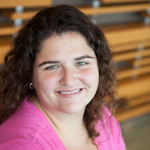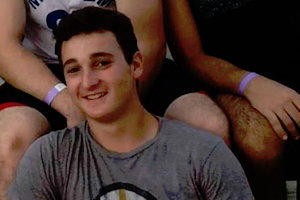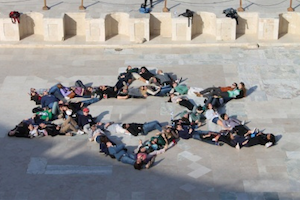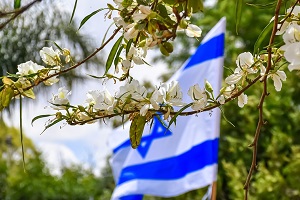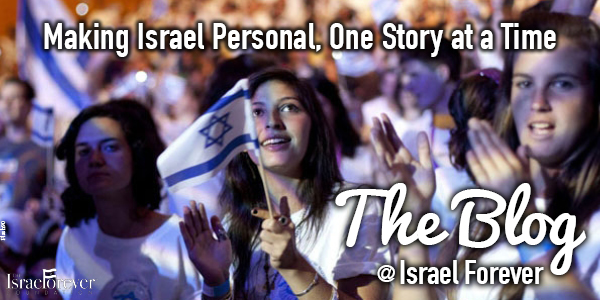Owning Israel
By Samantha Vinokor
The State of Israel has been described as the greatest project of the Jewish people.
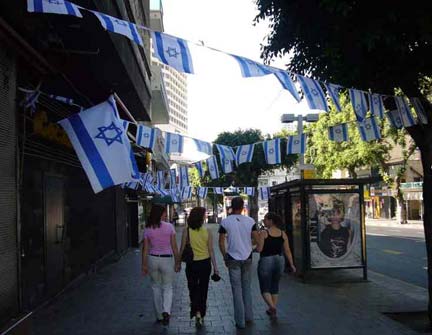
I will never deny that it is possible to live a rich and meaningful Jewish life outside of Israel. I grew up in New York and love it in a way that I don’t love anywhere else, and can confidently say that it is possible to be a proud Jew and a proud Zionist while also being proud of one's home in the Diaspora.
However, even as a native New Yorker, who can navigate highways and subways, and rattle off the names of a dozen nearby diners or pizza places at the drop of a hat, I find that there is a sense of both home and ownership that I have in Israel that doesn’t exist anywhere else.
Israel is mine, is ours, in a way that nowhere else can ever be. This ownership permeates everything, from national symbols and holidays, to the calendar, to the minutiae of daily life.
Every Friday, Jerusalemites flock to the Mahane Yehuda shuk. It becomes a sea of bodies, pushing, yelling, and grabbing fruits and vegetables.
On one level, this is a very Middle Eastern experience, and could be found in any of the surrounding countries. Open air markets with plentiful produce and screaming proprietors are the norm in the region, and in that sense, Israel is no exception.
But on a deeper level, Fridays at the shuk are an inherently Jewish experience, and a profound example of what it means for the Jewish people to have ownership over a space. Friday is the day when the shuk fills to capacity, because the whole city is preparing for Shabbat dinner.
Secular or religious, the rhythm of the Israeli week is set according to Jewish tradition, with traditional and non-traditional families gathering for Friday night dinner. The theater on which this plays out is the shuk, as challah bread flies off the shelves and greetings of Shabbat Shalom are exchanged, with everyone acknowledging this shared experience, regardless of how they observe it.
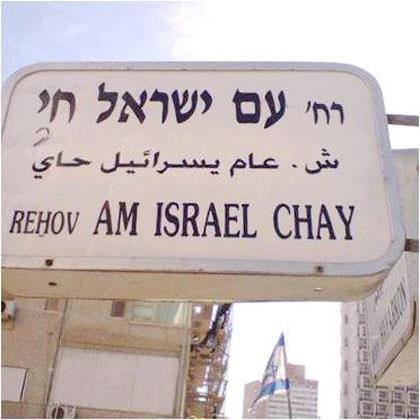
Walking around Israel, the Jewish identity of the country is palpable. Street names reflect Jewish and Israeli history, with almost every city displaying a King David Street, a Theodor Herzl Street, and streets with symbolic names such as HaZayit (olive), the most popular street name in the country.
Nowhere else in the world can I as a Jew walk down a street and have my history and identity reflected back at me in such a tangible way.
The same thing exists with national symbols, public holidays, and the powerful symbol of the siren that goes off nationwide twice a year, to honor the victims of the Holocaust on Yom HaShoah and those who have fallen in defense of Israel on Yom HaZikaron.
Every moment of silence reverberates for me as a Jew, reminding me that this is my country, where the history and identity of my people was shaped.
New York may be the greatest city in the world, and has given me countless opportunities and memories, but is not mine in this spiritual, ancient, unshakable way.
I don’t forget that every symbol that I’ve mentioned, and every powerful connection that I have with Israel and the culture of this country is controversial and not by any means universal. There are people, Jews and non-Jews, who live in Israel and connect with Israel and do not connect with anything that I’ve described.

That is the challenge of governing as Jews, and of figuring out what it means to have a Jewish State. The establishment of the State of Israel didn’t complete that process or provide answers to the numerous challenges that Israel faces, but rather ushered them into a new era, when Jewish self-determination and democracy is the vehicle by which we will figure these things out.
At the end of the day, loving Israel, criticizing Israel, proudly proclaiming Zionism, feeling burnt out from the balagan, all come together in knowing that this place is mine.
It’s mine in a way that has felt inherent and inexplicable from the first day that I set foot here.
Israel is where I feel the most whole, and know that I’m part of something greater than myself. Something that’s mine, and I’m a part of it, and it’s meant to be.
Recommended for You
SHARE YOUR STORY
Use your voice to inspire Israel in others today!
About the Author
